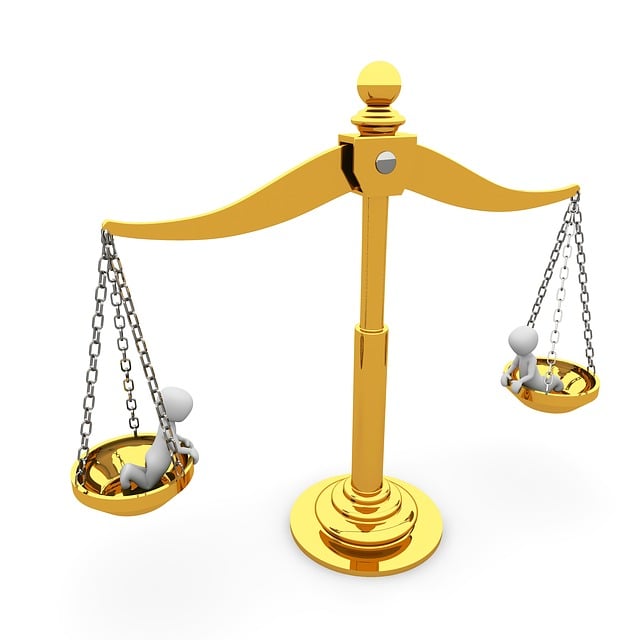In 2023, Securities Class Actions offer a powerful legal tool for addressing widespread Common Employment Law Violations, such as fraud, embezzlement, discrimination, and unpaid wages. With an increase in jury trials, robust corporate governance and compliance programs are crucial to mitigate risks, avoid costly lawsuits, and enhance public image. Regulatory changes influence class action suits, potentially leading to earlier resolutions. Defense strategies include challenging claim merits, scrutinizing alleged violations, and negotiating settlements for mutually beneficial agreements with discretion maintained through non-disclosure agreements.
Securities class actions have emerged as a significant legal landscape, empowering investors to hold companies accountable. This article delves into the intricate world of securities litigation, focusing on common employment law violations that dominated 2023. We explore how regulatory changes are reshaping these suits, and equip readers with strategies for defense and settlement negotiations. Understanding these dynamics is crucial for businesses and legal professionals navigating this complex environment.
- Understanding Securities Class Actions: A Legal Perspective
- Common Employment Law Violations: Trends in 2023
- The Impact of Regulatory Changes on Class Action Suits
- Strategies for Defense and Settlement Negotiations
Understanding Securities Class Actions: A Legal Perspective

Securities Class Actions provide a legal framework for addressing widespread employment law violations in 2023. When a group of employees experiences similar harm due to corporate misconduct, they can collectively take action against the offending entity. This collective approach leverages the power of numbers, allowing for more substantial compensation and meaningful change.
From a legal perspective, these actions often center around Common Employment Law Violations, such as discrimination, unpaid wages, or wrongful termination. Across the country, courts have recognized the value of class-action lawsuits in holding corporations accountable and ensuring justice for affected employees. Jury trials play a pivotal role in these cases, providing a platform for corporate and individual clients to seek redress and hold perpetrators to answer.
Common Employment Law Violations: Trends in 2023

In 2023, several trends have emerged regarding common employment law violations, highlighting areas where businesses and employees alike should focus their attention. One notable trend involves white-collar and economic crimes, such as fraud, embezzlement, and insider trading. As regulatory scrutiny intensifies, companies are increasingly facing lawsuits for failing to prevent these high-stakes cases. Another significant development is the rise in jury trials for employment disputes, with plaintiffs seeking substantial damages for perceived wrongdoings.
These trends underscore the importance of robust corporate governance and compliance programs. Organizations must implement stringent measures to protect sensitive data, ensure ethical conduct, and maintain transparent communication. By addressing these common employment law violations proactively, businesses can mitigate risks and avoid costly legal battles in the court of public opinion and in high-stakes cases.
The Impact of Regulatory Changes on Class Action Suits

Regulatory changes often have a profound impact on class action suits, particularly those involving common employment law violations that have been prevalent in 2023. As laws evolve, so do the strategies employed by plaintiffs and defendants alike. With stricter regulations in place, companies are becoming more cautious to avoid legal pitfalls, which can lead to earlier resolutions or enhanced defenses. This shift may result in a decrease in the number of class actions reaching trial stages.
For his clients, navigating these changes requires a keen understanding of evolving laws and their potential implications. Corporate and individual clients alike must be proactive in monitoring regulatory developments related to white-collar and economic crimes. By staying informed, they can make strategic decisions to mitigate risks and ensure compliance. This proactive approach is especially crucial for businesses operating in sectors with strict oversight, where class action suits have historically been a concern.
Strategies for Defense and Settlement Negotiations

Insecurities Class Actions often involve complex strategies for both plaintiffs and defendants. When it comes to defense and settlement negotiations, a proactive approach is essential. Law firms specializing in securities litigation should focus on identifying and challenging the merits of the claims, scrutinizing the alleged violations, and presenting compelling legal arguments to dismiss or weaken the case. One effective tactic is to highlight procedural issues, such as statute of limitations expirations, to undermine the plaintiffs’ ability to proceed. Additionally, defendants can leverage the potential for costly jury trials across the country, a deterrent that often encourages settlement negotiations.
Settlements in these cases require careful negotiation tactics. Defense attorneys should aim for mutually beneficial agreements by offering fair compensation while minimizing liability and reputational damage. This might involve negotiating with plaintiffs’ lawyers to structure settlements that include non-disclosure agreements or confidentiality provisions, ensuring the matter is resolved discreetly. A strategic settlement can prevent prolonged legal battles, including general criminal defense procedures, and mitigate the negative impact on both parties’ reputations, especially when addressing common employment law violations in 2023.
Securities class actions, shaped by regulatory changes and driven by trends in common employment law violations in 2023, require a nuanced understanding of legal strategies for defense and settlement negotiations. As the legal landscape evolves, professionals must adapt their approaches to address these complex issues effectively. By staying informed about recent developments and employing innovative tactics, entities can navigate this challenging environment while ensuring fairness for all stakeholders involved.






